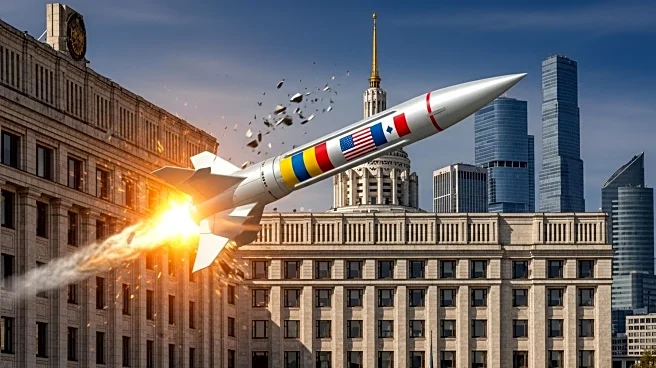What is the story about?
What's Happening?
A Russian Iskander missile struck Ukraine's Cabinet of Ministers building, containing over 30 foreign-made components, according to presidential sanctions commissioner Vladyslav Vlasiuk. Despite sanctions, Western technology remains present in Russian weapons. The missile's warhead failed to detonate, but its fuel caused a fire. Components from the U.S., Japan, the U.K., Switzerland, Belarus, and Russia were identified. Kyiv has shared these findings with international partners for sanctions follow-up.
Why It's Important?
The presence of foreign components in Russian missiles highlights the challenges of enforcing international sanctions. It raises concerns about the effectiveness of current measures and the ability of countries to prevent the export of dual-use technologies. This revelation may prompt a reevaluation of existing sanctions and strategies to curb Russia's access to foreign technology. It also underscores the complexity of global supply chains and the need for coordinated international efforts to address smuggling networks.
What's Next?
Ukraine is likely to push for stricter enforcement of sanctions and increased scrutiny of global supply chains. International partners may consider additional measures to prevent the export of technology to Russia. The findings could lead to diplomatic discussions and potential adjustments to existing sanctions policies. Companies identified as suppliers may face increased pressure to ensure compliance with export restrictions.















